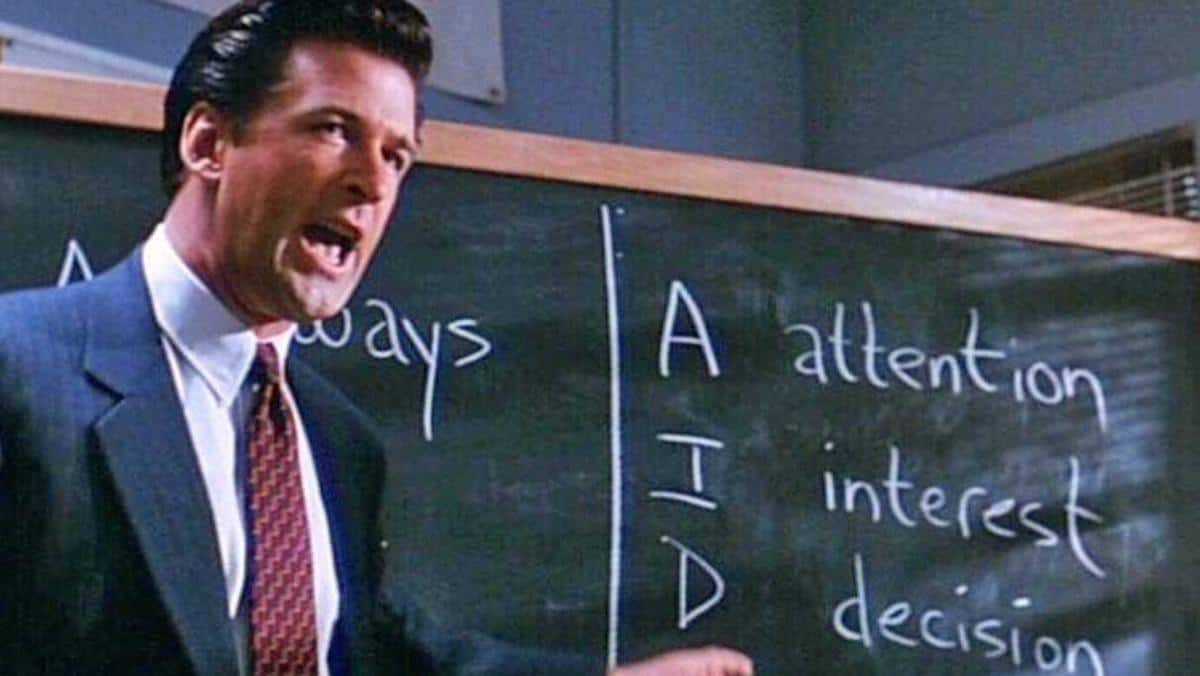The other day I tweeted that everything is about sales. I was half right.
The ‘everything is about sales’ trope is not a new one—I didn’t invent it. I tweeted it, as I have in the past, simply because ‘sales’ (the discipline) has been close to my heart since I first became a telesales operator in a sleazy office in Manchester back in the fag end of the nineties.
(And if you want picture of real downbeat ‘office hell’, picture having to go into work on a dodgy industrial estate near the Manchester United football club, in an office filled with alcoholics and dole-cheats, all trying to flog some spurious ‘business rates reduction solution’).
But tonight, as I sit outside my favourite cafe in London’s Soho, and watch the beautiful people pass by under neon lights, I wonder if there isn’t a slightly more subtle was of couching my tweet—namely, by positing instead that everything is about seduction.
Of course, dating and game are all about seduction. If you want a beautiful girl to sleep with you then you must seduce her. That is indisputable.
But actually, if you want anyone to do anything you must ‘seduce’ them—particularly if you want them to buy something from you.
Seduction
Let’s have a look at the etymology of the word ‘seduce’:
(1520s) “to persuade a vassal, etc., to desert his allegiance or service,” from Latin seducere “lead away, lead astray,”
To lead away and lead astray—I like that. Another translation of seducere is ‘draw aside’. Basically, the seducer must find a way to cause his target to deviate away from their intended path and do something else instead.
Seduction logically follows the old sales formula AIDA: attention, interest, desire, action. First you must gain your target’s attention, then her interest. Next she must desire you. And after that you must cause her to take action.
In game, the manner in which AIDA is accomplished has been laid out in detail by many writers, most notably by Mystery in The Mystery Method. Meanwhile, in business we have sales books from all manner of people including Grant Cardone and Zig Ziglar.
Seduction v. Sales
But what is the difference between ‘sales’ and ‘seduction’?
Looking at the etymology of the words ‘sell’ and ‘sales’, we see that they are Old Norse in origin, and mean (from the root sal) ‘to grasp, take’.
That is perhaps a little opaque. But the implication seems to be that the act of selling is like grasping. Selling is somewhat mercenary, in other words.
Which is why it profits all of us to think more in terms of seduction than selling. Fundamentally, we need to shift our thoughts from ‘taking’ something from our targets (their money or sex), and focus instead on surprising and delighting them in such a way as to gently ‘lead’ them around to our way of thinking.
And this is at the root of the ‘personal brand’ business model, where you put out tons of free content before even asking for a sale. That free content is intended to seduce your audience, so that when you do offer them something to buy (a book, or an online course, or whatever) then they are far more inclined to do so.
So from now on, let’s think far more about how we can seduce rather than sell.






